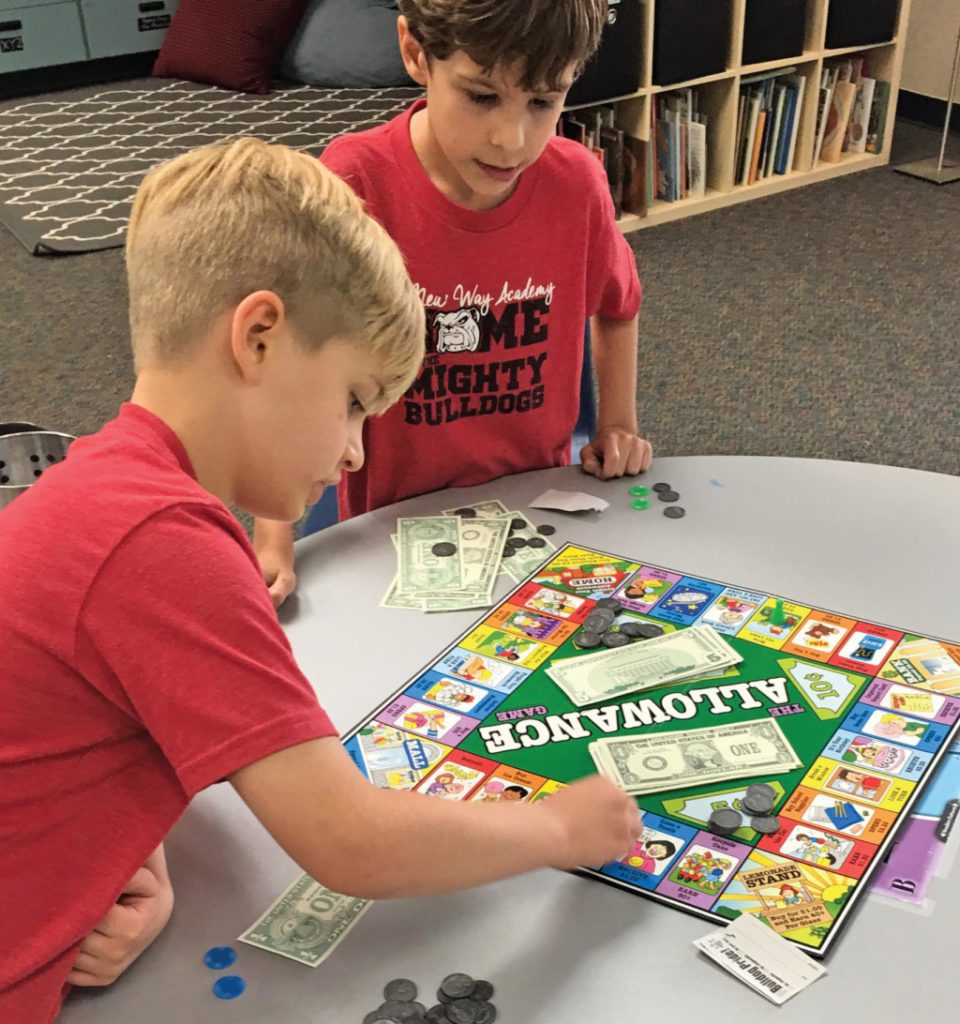At New Way, we strive to equip our students with the tools, experience and self-awareness to flourish. While every student has diverse strengths and areas of need, in my humble opinion, one of the greatest predictors of lifelong academic, professional, and personal success is Executive Function skills.
Executive Function affects our ability to maintain attention, organization, impulse control, time-management, working-memory, and beyond. For individuals with challenges in these areas, both academic and home life are directly affected. Research shows that individuals with attention, emotional and learning differences often benefit from support in developing Executive Function skills. The encouraging news is, research shows that “children aren’t born with these skills – they are born with the potential to develop them” (Center on the Developing Child, Harvard University).
Here is a wonderful video from the Center on the Developing Child, from Harvard University.

As Executive Function directly affects virtually every aspect of life, it only makes sense that we support the development of these skills both in and out of the classroom, across all ages. Parents often inquire about what can be done at home to further support these developing areas. For those parents, it is encouraging to know that nurturing Executive Function skills at home can be fun and interactive; there is no direct intervention or complex parent’s manual to success. The good news is, it can be fun and easy to work on these skills at home with children of all ages!
While research and data can over complicate our understanding of Executive Function, it is actually rather simple to reinforce and develop these skills at home.
Here are a few simple ideas to that you can start using today:
- Play Together. I am a big proponent of family game night. A simple card or board game allows children to expand their understanding of cause and effect, while practicing mental flexibility and rule following. For younger students, any game that requires matching cards and memory can strengthen working memory, organization strategies, and attention. Jenga is a great game for all ages! It requires planning, impulse control, and self-monitoring. Players have to assess the pieces each turn before making a plan of action, which requires flexible thinking. Above all else, encouraging sportsmanship and positive social interactions support the development of emotional regulation. For more ideas, check out this great list of games for improving Executive Functioning skills.
- Lead by Example. Simple, at home, organizational tools such as a family calendar, color coding systems, labels, and tasks lists, support the development of Executive Function skills as children can practice time-management, organization, and self-monitoring. A few simple ways to do this are:
- Use Laminated task check lists around the home to help children understand sequential events and household expectations. For example, having a before school checklist that includes a morning schedule and backpack check list is a wonderful way to reinforce routine development. Or, try laminating the steps to proper hygiene and putting it in the bathroom to be checked off with a dry-erase marker each day is beneficial! This strategy works well for all ages.
- Schedules with pictures can facilitate time management, especially in younger students.
- Set timers and verbalize time reminders (ex: you have five minutes until we leave, you now have 2 minutes until we leave) to help develop a concept of time. We often find that students have a skewed sense of time. In discussing how long activities actually take, students can develop a realistic concept of time.
- Communicate with your child’s teacher and see if you can implement consistent organization systems at home to strengthen classroom strategies.
- Practice and Praise. Developing new skills requires time, patience, and consistency. As a family, select ONE task to work on at a time. Focus energy and resources on developing this one goal. Too much at once can be discouraging. Be sure to set small, specific, manageable goals and celebrate growth and success along the way. Positive reinforcement can be particularly effective at all ages. For younger students, sticker charts or a point system to earn bigger prizes can be used to maintain motivation. This also helps develop cause and effect and impulse control, as it requires a long term reward. For children with deficits in Executive Function, they may express frustration or fatigue as they are challenged to grow in these areas. Ultimately, we must remember that all new skills require practice!
As we nurture our children, we want to prepare them with the tools for future success. We can find comfort in knowing we are not alone; read more about a mother’s perspective on learning differences here. There are so many diverse and creative ways to support the development of Executive Function. To continue this conversation, comment below to share strategies you have found successful in supporting these areas of growth at home.












